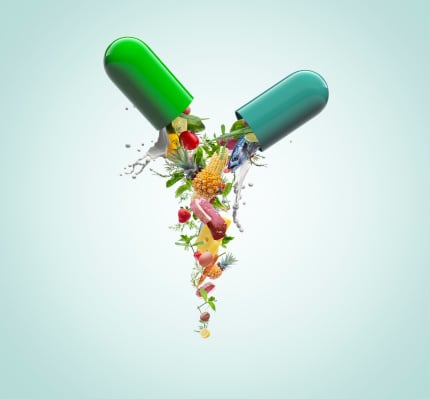Your Cutting Board May Make You Sick
A new Swiss study of cutting boards used in homes and hospitals found that the boards were contaminated with dangerous, multidrug-resistant forms of the bacteria Escherichia coli (E. coli).
As the source of the most virulent, and sometimes deadly, form of food poisoning, E. coli is a bacterium to avoid if you want to protect yourself and your family.
The Swiss researchers tested 154 cutting boards from a hospital and 144 from private homes. The boards had been used to prepare poultry, pork, beef, lamb, game and fish. They found that 6.5 percent of the hospital boards and 3.5 percent of the household boards that were used to prepare poultry were contaminated with multidrug-resistant E. coli. The red meats and fish did not contaminate the boards.
They also tested 20 pairs of gloves used by kitchen workers and found that half of them were also contaminated by the bacteria. The study was reported by HealthDay. The full text will appear in the May issue of the journal Infection Control and Hospital Epidemiology.
How to Protect Yourself from E. coli
The rate of home contamination in the study — 3.6 percent — may seem small, but you only need to be exposed to a tiny amount of the toxic form of E. coli to become sick. The symptoms may differ in each person, but they include diarrhea, vomiting, stomach cramps and sometimes a low fever. They may appear anywhere from 1-to-4 days after exposure and require immediate medical attention. Children, the elderly and people with weak immune systems are especially vulnerable.
Most forms of E. coli are harmless. The bacteria naturally live in our intestines and help to keep us healthy. Exposure to a toxic form most often happens after we come into contact with meat, poultry or raw vegetables that have been contaminated on a farm or at a food processing facility.
How to Kill E. Coli
On cutting boards: If your cutting board is old or worn, it’s time to toss it and shop for a new one. Wood, plastic, glass and acrylic boards can all become contaminated, so be sure to wash them in hot, soapy water and dry them thoroughly before putting them away. Bamboo is harder than other woods and therefore less likely to scar and absorb bacteria. To sanitize them, let boards sit in a solution of 1 tablespoon chlorine bleach to one gallon of water for a few minutes. Rinse and dry.
On meat: A whole chicken should register 165 degrees Fahrenheit in the exterior thigh. Poultry parts should be cooked through completely. Whole cuts of pork should reach a temperature of 160 F to 145 F, after resting for three minutes. For beef, veal and lamb, the safe temperature is 145 F, according to the United States Food and Drug Administration.
On raw vegetables: This is tricky. There is no way to completely kill E. coli on the surface of raw vegetables because the bacteria become stuck in sticky film (biofilm) that is invisible to the eye. You can cut your chances of contamination by washing vegetables in about a quarter cup of vinegar mixed with two cups of water. Rub the vegetable, while it’s in the solution, to remove more bacteria before rinsing in warm or hot water. But, the only way to be sure you have killed all of the possible toxic E. coli on a contaminated vegetable is to cook the vegetable. Fortunately, most of our produce is safe.
On surfaces: Killing E. coli on surfaces, such as countertops, is relatively easy. Simply wash with a solution of 1 teaspoon of chlorine bleach to 1 quart of water. Clorox kitchen wipes will also do the job.
Whoopi Working to Save Lives from LBD
Lewy Body Dementia (LBD) is a little-known form of cognitive decline that affects 1.3 million Americans. That’s why Whoopi Goldberg has agreed to guide the “Lewy Who?” awareness campaign.
African Americans are about twice as likely to develop dementia. Whoopi wants people to know that LBD is particularly devastating because it is most often misdiagnosed. That means people miss the opportunity for effective treatment. Watch Whoopi tell the LBD story and share important symptoms.
Your Grandkids Might Make You Smarter
Here’s another great reason to spend (a little) time with your adorable grandchildren. A new study published in the journal, Menopause, reports that the delightful and moderately stimulating time you spend with your grandkids may boost your cognitive skills in your senior years.
The trick is not to overdo it. The researchers report, “the highest cognitive performance is demonstrated by postmenopausal women who spend one day a week minding grandchildren; however, minding grandchildren for five days or more per week predicts lower working memory performance and processing speed. These results indicate that highly frequent grandparenting predicts lower cognitive performance.”
While the researchers did not report the exact reason for the connection between grandparenting and mental sharpness, they did consider the study findings an indication of an important link. The study did not, however, prove that there was a cause-and-effect relationship between seeing your grandkids five days a week and mental decline. They cite the study as a great first step, but agree more research is needed.








